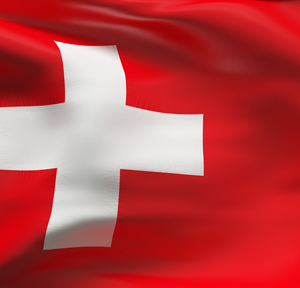Compliance
Battery Maker Quits SIX, Blames EU-Swiss Trade Row

The departure from the Swiss stock exchange is being blamed in part for the trade argument that has been going on between Brussels and Berne since 2019 and which has echoes of the frictions between the UK and the European bloc.
Batteries business Blackstone
Resources, which has been listed on Switzerland’s SIX
exchange since 2018, is leaving that market and going private
before moving to a different stock market. It blamed European
Union restrictions on the Swiss market as a reason for the move,
highlighting how trade frictions between Brussels and the Alpine
state remain a problem.
"In our view, the future of battery technology lies primarily in
the USA and Germany," Blackstone Resources’ chief executive and
founder, Ulrich Ernst, said in a statement yesterday. "We are now
planning to shortly go public on the German, English or American
stock exchanges."
Blackstone Resources will initially be a private equity company,
it said.
For the time being, shareholders will no longer be able to trade
their shares on a stock exchange, but only buy and sell them
privately, and they will retain dividend rights. Shareholders
will have to be patient until a new IPO or reverse merger and
trading is organised. Shareholders who are registered in the
share register will then be informed directly by Blackstone, the
firm said.
The firm has crossed swords with SIX recently. In June, SIX Group
fined the group, a Swiss holding company based in Zug, for
breaching IFRS accounting standards. Blackstone Resources has
reportedly appealed against the decision. In a statement on 3
February, the firm said: “Blackstone Resources AG takes its
responsibility for financial reporting very seriously. The
company does not share the view of SIX and stands by its
previously published financial statements.”
(The firm is, as far as this publication is aware, entirely
unconnected with US-listed investment group
Blackstone.)
Moving to a new home
Blackstone’s statement on its SIX departure said: “The market
environment in Switzerland unfortunately limits European
investments to a large extent. This is also due to current
restrictions imposed by the EU on the SIX. At the same time,
foreign capital markets, the market environment and regulators
welcome high-tech companies like Blackstone. Investor interest
and competitor valuations clearly show this.”
The story highlights how trade frictions between Switzerland and
the EU, while not as prominent or widely covered as those
involving the UK and Brussels, have been a bone of
contention for several years. In 2019 the EU denied
Switzerland’s stock exchange equivalency status. Equity
securities listed on Swiss exchanges are banned from being traded
on stock exchanges in the EU.
Brussels has been trying to negotiate a sweeping framework pact
with Swiss policymakers in Berne, but moves have been
stymied by Swiss political resistance to EU influence
over internal Swiss affairs – for example, over labour
regulations. In a 2014 referendum, Swiss voters narrowly chose to
restrict immigration, which is at odds with access to the EU
Single Market.
Ironically, the Swiss/EU wrangle has echoes of the kind of
arguments that led to the UK leaving the bloc.
Battery power
In Germany, Blackstone Technology (a wholly-owned subsidiary of
Blackstone Resources AG) has built a battery factory to make
3D-printed battery cells; it was put into operation last
December. CEO David Batstone, chief operating officer Marc Kruse
and other specialists were recently recruited for Blackstone
Technology's expansion into the US.
Because of its active market operations in Germany and the US, it
makes sense to list in “relevant" trading venues, the firm
said.
Blackstone Technology is completing the second generation of
Blackstone's proprietary 3D printing technology, high-speed
multi-layer technology, for lithium-ion batteries. This project
is funded by the German Federal Ministry for Economic Affairs and
Climate Protection with a total allocation of up to €24.1 million
($24.82 million).